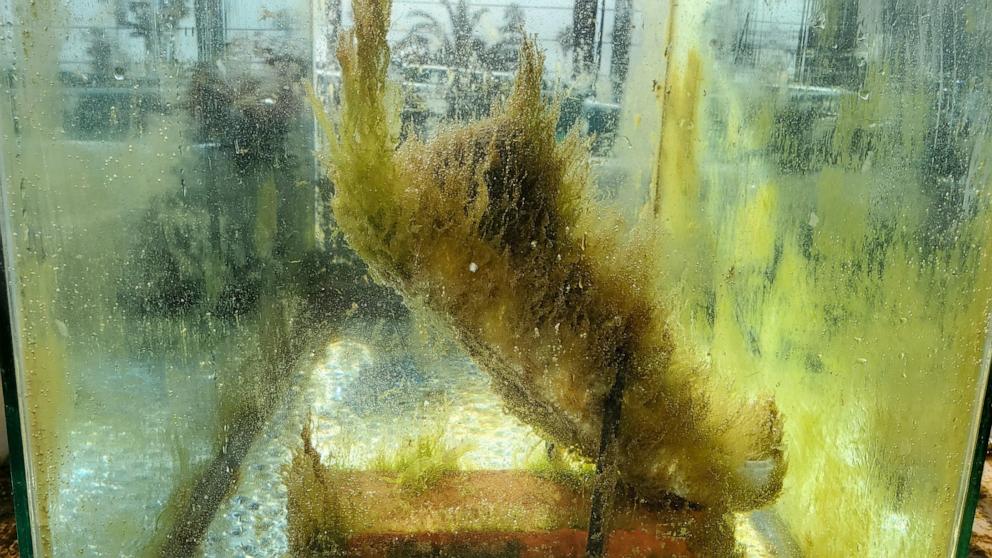i am sure it will be “too expensive” for the next 30 to 40 years.
Same people, they’ve been making biodegradable footwear for a bit now.
Why bother with that? If you need shoes to dissolve, regardless of the materials, just subject them to my foot sweat for a few months.
Until get externalities of plastic on to the up front cost. We kind of did it on plastic bags in the UK.
Much more likely that no company wants to use it no matter how much it costs because it degrades. We use plastic as a packing material specifically because it doesn’t degrade and lasts forever.
deleted by creator
We have a lot of options for materials that completely decompose. The challenge is materials that only decompose when you want them to, and not while theyre sitting on store shelves
That doesn’t sound like a problem but a feature. We love new shiny things and wasting things.
I think if we find materials that breakdown in a useful way, it creates an incentive to make use of those products that have a shelf life. But more importantly creating a waste product that is beneficial.
I didn’t know if the material science is there yet. But we need to figure out the best way to use these new materials to change industries.
If we can make something profitable, other people will do the hard part of adopting it and getting it out there.
My work produces sooo much waste. More than all of the staff combined will ever produce. And thats just my branch. We have hundreds of branches and being where we are in canada, we put some of the most amount of effort into recycling. Because its law, not because the company is willing to sacrifice profit by spending resources on anything that doesnt produce value in dollars.
We are small fry, and we arent in a monopoly
I think if we find materials that breakdown in a useful way, it creates an incentive to make use of those products that have a shelf life. But more importantly creating a waste product that is beneficial.
Cardboard. It composts well.
I go through more cardboard than garbage. It’s not useful for many packaging or shipping solutions
Right, generally whenever fluids or outdoor exposure is a concern. Because it decomposes.
In not sure what point you are making. But ill clarify that i was only trying to show that i did take the use of cardboard into consideration when i have the opinion i did.
That may not help or already be understood.
I dont know what happening
We have cardboard and paper for when you want packaging to eventually decompose. And plastic for when you dont want it to. Which is why no decomposable alternative for plastic has caught on, plastic is mainly used in those situations we dont want it decomposing. A lot of people have developed plant based, biodegradable plastics, its actually not that hard. Theyre just all prone to decomposing
Glass? We used that for decades.
Almost all of the plastic I use at work so ship orders, is used for less than a day. Tape, plastic bags, wrap, strapping.
We use so much of it to just contain things for extrememly short periods of time, its all disposable plastic that isnt needed for more than a day usually, often hours.
Nothing about does anyone think even once we dont want it to decompose too soon
We we are one industry, and just one branch of one player in it. And we are one of the few areas that has rules about recycling.
Industry can change if they want but they dont.
We could easily switch to paper tape and start there at least eliminating one entire product line from waste. But if we can just straight up swap oil-plastic tape for biodegradable-plastic tape it would be one example of something we can do right now that we won’t until we are forced to
All it would take is the product be available and the cost not more than what we are using. So subsidize the cost of using the product we want to lower its price and get people using it. When they do scaling and maturing of this new product will also bring the cost down which will reduce the need of subsidizing it, over time or sudden advances, and make the bad product less appealing because of cost.
But you have to make that transition as easy as simply ordering a different part number when ordering supplies.
Its never going to be industry that makes this happen unless it costs less. So it will likely need to come from government whether it be economic policy or legislative policy
The problem with cardboard isnt that it decomposes, but that its made of paper, which absorbs fluids. Its also not really possible to make air-proof packaging with cardboard.
I wonder why we shifted away from things like waxed paper milk cartons(like the small ones you’d get in school) and waxed butcher paper?
Is waxed paper/cardboard product really that much more expensive than plastic in terms of packaging?
Because wax production has numerous negative impacts on the environment: higher energy costs (which lead to higher product costs), deforestation (in case of soy or palm based wax), impact on bee population (in case of bee wax), etc.
Plastics are just better materials for pretty much everything.
It’s not really a problem of lack of know-how, not even a problem of mass production (some industries made the transition for various reasons). It’s a problem of a monopoly with dirty lobbies & gov subsidies.
Ah crap. 😩
I have a lot to say when reading a headline like this, but it boils down to: I really hope advances like this and EV’s topple the fossil fuel industry that’s hurting our planet.
I agree, although, the pessimist in me says the Oil companies will find a way to kill it somehow.
Hate to say it, but i think it’s going to require violence to change their calculations.
Probably by buying and then sitting on the patents
This is exciting news. Repubs pretend climate change is a myth because the oil industry has them in pocket. The smarter take would be to cheer for all the economic incentives to build new markets that are sustainable.
In this case, the potential doesn’t relate to climate change, but to pollution. It might make carbon a teensy bit worse, but probably not enough to matter (and growing the algae would presumably more than offset that tiny bit).
Yes and they can make paper from kudzu. So - wrapped in paper then bioplastic and voilá. No more eternal waste.
great wasnt the whole benefit of plastik that it doesent decompose tho?
Depends on the use case.
Reading the article, it doesn’t seem like it just disintegraties after 7 months, this material has to be under compositing conditions with a specific microbe due 7 months.
There are applications where this would probably be an unacceptable possibility, but I’d imagine the vast majority of single use plastics would be fine with this. Packaging may spend months or even years doing it’s job, but it won’t be under compost conditions during that time.
That was the selling point before we got into mass production of disposable plastic everything.
Is it price-competitive with the oil-plastic? What usecases?
I want to be optimistic, but…
No he said that in the video. It’s a moot point. We are looking at doing something new. Will it be price competitive once it matures? Thats what we need to be asking.
Because if yes, immediately shift ALL subsidies from petroleum to whatever CAN effectively replace oil-plastic.
Whatever we do, it has to actually be effective regardless of cost. Cost come down as economies of scale sort themselves out.
Plastic is killing us anyway, what cost matters if we are all dead?
This is a problem NOW. Paying for it is a problem LATER.
deleted by creator











